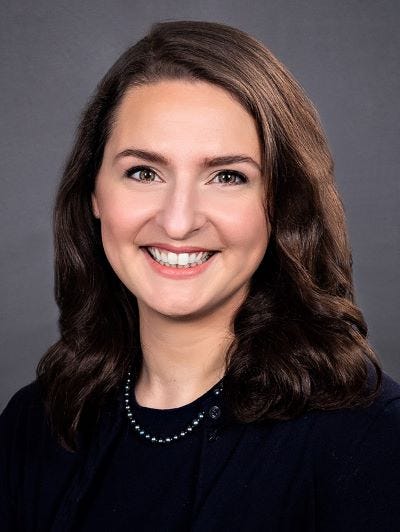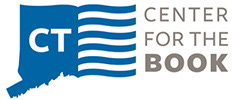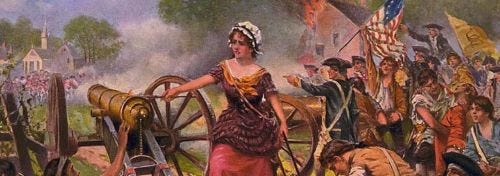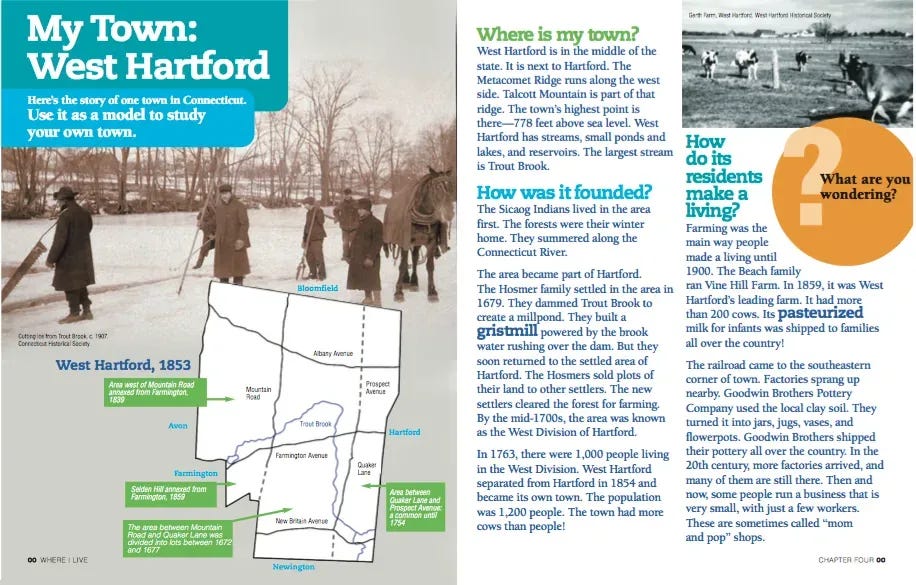CT Explored/Inbox
SPRING 2025: The Power of Words. Welcome to your bi-weekly newsletter from Connecticut Explored with the latest stories, the newest Grating the Nutmeg podcast, programs/exhibitions from our partners.
Hog River Journal
The Power of Words by Kathy Hermes, Publisher © Connecticut Explored
As a 10-year-old, I received the novel A Little Princess by Frances Hodgson Burnett from my cousin Marie. It had only a few illustrations and looked serious and impressive. A wealthy little girl arrives at a London boarding school with her father, a captain stationed in India who had invested in diamond mines. Accompanying her are books in English and French, a life-size doll, and fashionable clothes, including a coat with an ermine collar. As an adult, I have reflected on the story of colonialism embedded in scenes that took place when Queen Victoria was known as the Empress of India. But as a child, what I loved about the book was that its heroine, Sara Crewe, lived in words. She loved history and languages; when hard times enveloped her, she lived in her imagination. She was dignified, kind, inventive, and, above all, eager to be educated. When her father died broke, she was thrust into poverty and forced to live in the school’s garret, her fine clothes turning to rags too small for her growing form. It turned out that what made her a princess was not her possessions but her character. The power of words played such a large role in that book that I have never forgotten it.
In this issue about the power of words, we feature people who made great use of words. Connecticut, the land of steady habits, has steadily produced some of America’s most famous educators, scholars, and writers. Our state, an amalgam of cultures that settled atop a legendary Puritan foundation, is the birthplace of novelists like Harriet Beecher Stowe and educators like Henry Barnard. She was a literary activist whose novel Uncle Tom’s Cabin changed a nation, and he was an educational policymaker who changed its schools. Some of these giants, if they weren’t born in Connecticut, settled here. Novelist Sinclair Lewis transformed 20th-century literature with his sharp satire, and educator Dr. Benjamin Foster transformed classrooms and policy with his tireless efforts to improve young lives.
Novelist Emma Dowd, a Meriden native who wrote poetry and novels for children, struggled with a disability. Her stories feature protagonists bravely convalescing in the hospital or cheerfully visiting older adults at a rest home. Our kids’ page features an ordinary six-year-old boy’s charming letters to his father. Charlie Chadwick grew up to be an athlete, Yale graduate, lawyer, and novelist.
For these titans of their crafts, words were their power, but they also gained power from words. Sometimes, words were an introduction to another person, advice from a mentor to a mentee, or encouragement to keep going. The power of words is as evident in listening and reading as in speaking and writing.
Our Spring issues are often dedicated to historic preservation. Last year, we focused on digital preservation tools; the year before, we looked at the power of place in preserving our history. In this issue, we witness how words alter things and how often they don’t preserve but instead do the opposite. So, our photo essay is our contribution to preservation. It shows how two sisters preserved their house and family name against the odds!
Read the entire Spring issue by subscribing to Connecticut Explored!
Libraries and the Power of Words
By Ellen Paul © Connecticut Explored
The following essay, by Ellen Paul, executive director of the Connecticut Library Consortium, was written in collaboration with the Connecticut Center for the Book at Connecticut Humanities.
Connecticut has a long history of supporting public libraries. Salisbury was among the first towns in the nation to establish a library supported with tax dollars. The Hartford Public Library can trace its roots back 250 years. In East Hampton, residents went door to door in the late 1800s to raise money to establish a free lending library. But as long as there have been words in libraries, there have been challenges to what words reside within those walls.
Librarians innately understand the power of words. They work to ensure that books and information are available to inform, engage, and enlighten all community members. They are trained to build collections of high-quality, accurate, well-reviewed materials. They believe access to these materials should not be restricted or revoked simply because an individual or group objects to their content.
Like the rest of the nation, Connecticut has seen a rise in book challenges in the last three years. A book challenge is not simply a person expressing a point of view. It is an attempt to remove a book from the library or move it to a restricted location, effectively denying an entire community access to that book’s words and ideas.
In 2023, over 100 different titles were challenged in Connecticut libraries. In Guilford and Brookfield, the public schools faced controversy over titles in their libraries. In Colchester, the first selectman asked the Cragin Memorial Library staff to shut down the children’s room until the collection could be analyzed for sexually explicit content. Suffield’s first selectman asked the Kent Memorial Library staff to remove a book about pronouns from a display. In Old Lyme, 135 residents presented the Phoebe Griffin Noyes Library with a petition to remove two young adult books about sexual health, and in Goshen, a book purchased years ago sparked a months-long challenge. In each case, the library or board of education followed its prescribed policies and retained the books.
We know about these book challenges because they were loud, provocative, and widely reported. But there have been many more around the state that haven’t made the local news. Most objections cite children’s or young adult books with words, illustrations, or themes that make some people uncomfortable. But it is never the librarian’s job to dictate what people read, only to ensure equitable access to information. It would be noble to suggest that librarians challenge censorshipbecause the free flow of information is the bedrock of our democracy. But most librarians just want to find the right book for the right person at the right time.
Connecticut has over 1,000 public, school, and academic libraries, each containing something to offend someone. This is not because libraries seek out controversy but because they aim to serve everyone in our diverse and divisive world. Attempts to abridge free access to words and ideas are not a modern development but rather a perpetuation of what librarians have always known: words have power, and where there is power, there will always be a struggle for control.
The Latest From Grating the Nutmeg
Amistad Retold: New Haven and the 1839 Amistad Revolt
The New Haven Museum exhibition, “Amistad: Retold,” centers the people who led the 1839 revolt and their collective actions to determine their own lives. It also focuses on New Haven as the site of their incarceration and abolitionist organizing.
Guests for this episode are award-winning historian, writer, and filmmaker Dr. Marcus Rediker, Distinguished Professor of Atlantic History at the University of Pittsburgh, and Joanna Steinberg, the New Haven Museum’s Director of Learning and Engagement.
Listen: “Amistad Retold: New Haven and the 1839 Amistad Revolt”
Programs and Exhibitions to Enjoy This Month
Institute for American Indian Studies
Join a panel of Indigenous educators for a series of presentations and a roundtable discussion on the importance of centering Indigenous knowledge in education for non-Indigenous publics. This roundtable welcomes discussion about the new Connecticut Social Studies curriculum standards, the challenges and opportunities of Indigenous-led education in museums and other educational settings, and the purpose of museums in the 21st century. Our roundtable will discuss what role archaeological research should play in centering Indigenous knowledge and Indigenous Science, and the strategies inherent within education and outreach that aim to support Indigenous Futures.
Annual Roundtable Saturday, March 22, 2025 12:00 - 3:00 PM. In person.
Thomas S Perakos Arts and Community Center, Frederick Gunn School, 22 Kirby Road, Washington, CT
Greenwich Historical Society
In our third installment of our Reflections on the Revolution Lecture Series, join the Greenwich Historical Society this March for a special presentation in honor of Women’s History Month. The Historical Society will host an exciting talk from historian and Revolutionary War expert, Dr. Katherine Hermes, who will delve into women’s roles during one of the most tumultuous events in American history.
Working for the Revolution: Patriot Women’s Lives During the War March 8, 2025 2:00 -3:15 PM. In person, $20 tickets.
47 Strickland Road, Cos Cob. greenwichhistory.org; 203-869-6899
Civic Learning Week
Get ready for #CivicLearningWeek! From March 10th through the 14th, students, educators, policymakers, & private and public sector leaders will come together to energize the movement for civic education as a nationwide priority. Prepare with Grating the Nutmeg and Connecticut Explored by reading and listening to civics-focused stories about “How Connecticut Got Zoning,” “Radical Connecticut: Labor Strikes!” “Phyllis Zlotnick, Disability Rights Activist,” and “Miss Crandall’s School for Black Women.” Learn more at ctexplored.org and civiclearningweek.org
Take a look at our Lesson Plan: Civics and Connecticut’s Constitution of 1818
“My Town” Template for Where I Live: Connecticut
Find more information on the “My Town” Template page.
The Ancient Burying Ground
The Ancient Burying Ground is the oldest surviving colonial site in downtown Hartford. During the winter months, cemetery enthusiasts, researchers, and historians can access an abundance of resources on the Ancient Burying Ground Association website.
679 Main Street, Hartford. 860-337-1640; theancientburyingground.org
Connecticut Landmarks
Caroline Woolsey Ferriday wrote countless letters from her summer home in Bethlehem, now the Bellamy–Ferriday House and Garden, a Connecticut Landmarks museum. Ferriday was a 20th-century philanthropist who championed human rights and social justice causes, using the power of her words to effect change.
Discover more at ctlandmarks.org.
CTExplored is a reader-supported publication. Consider becoming a Premium newsletter subscriber to support our mission and get all the stories in our magazine delivered right to your inbox. Just $30 a year! Or subscribe to our print publication.










